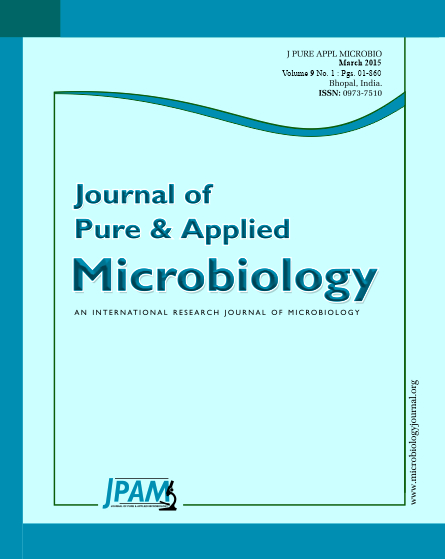Endoproteinase Lys-C is an important tool enzyme in industrial produce, mainly gained from Lysobacterenzymogenesat a low efficiency and a long fermentation period. The special environmental factors of outer space may stimulate engineering bacteria to bear high-yield mutant strains. In this study, we sent L.enzymogenes into space via the Chinese Shenzhou-10 spacecraft for approximate 15 days,finding that the total cell number reduced to (24 ± 3.5) ×105cfu/ml after spaceflight, only 13.5% of that in the ground control sample. However, Lys-C activityin ground control bacteria was 0.087 U/ml after fermentation for 120 hours, which was its optical fermentation time for maximal yield, while that in spaceflight sample increased by 17.2%-40.2%,with theoptical fermentation time shortened by 24-48 hours. Further investigatingthe genetic stability of spaceflight sample revealed that both enzyme-producing ability and optical fermentation time after 1, 3, 5, 7, 9, 11 and 15 passages didn’t change,revealing good stability of the spaceflight mutant strain. In summary, spaceflight experience could stably increase the yield of Lys-C by L.enzymogenesand shorten the optical fermentation time of Lys-C, which will benefit its industrial produce.
Endopeptidaselys-C, Bacteria, Spaceflight, Fermentation
© The Author(s) 2015. Open Access. This article is distributed under the terms of the Creative Commons Attribution 4.0 International License which permits unrestricted use, sharing, distribution, and reproduction in any medium, provided you give appropriate credit to the original author(s) and the source, provide a link to the Creative Commons license, and indicate if changes were made.


